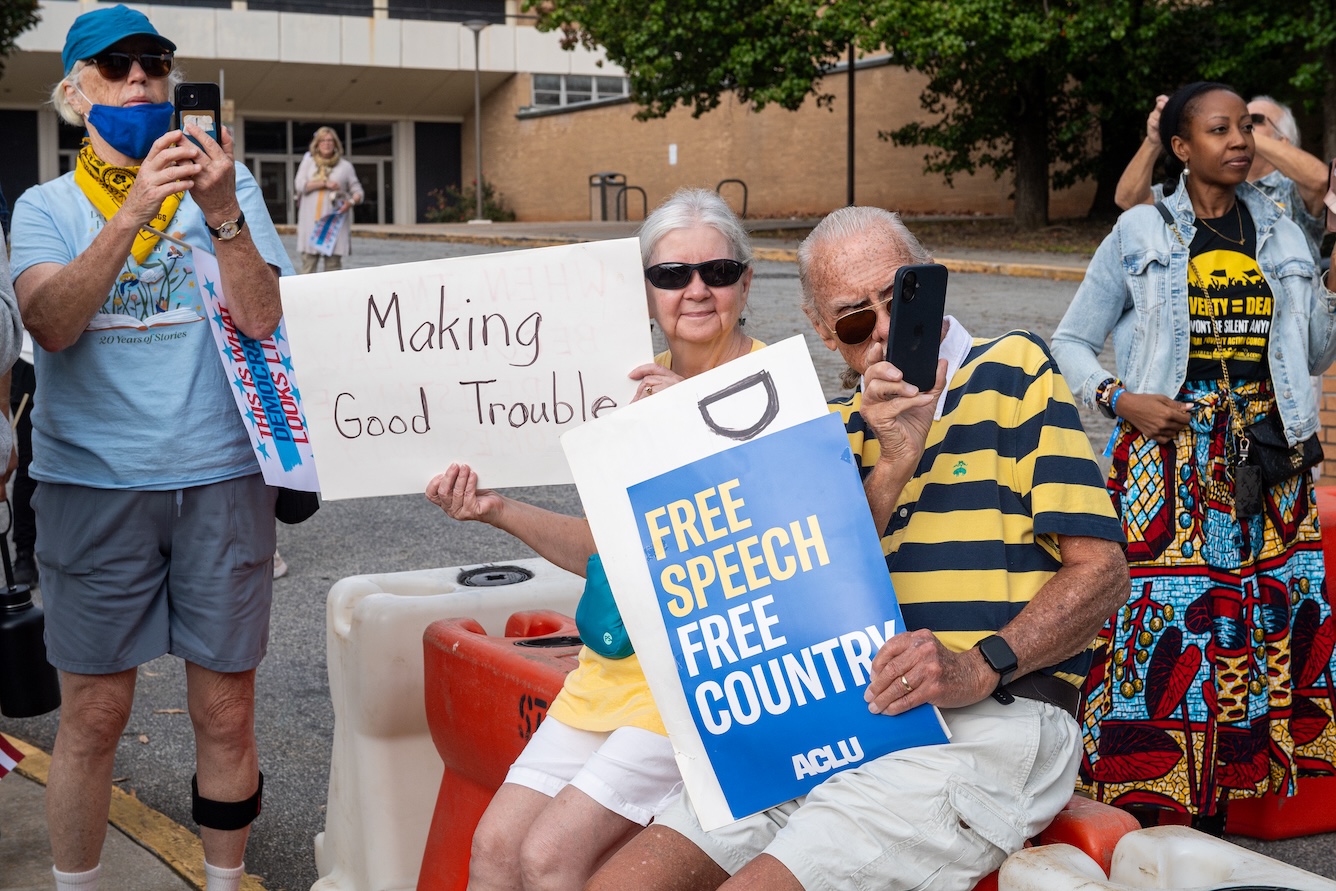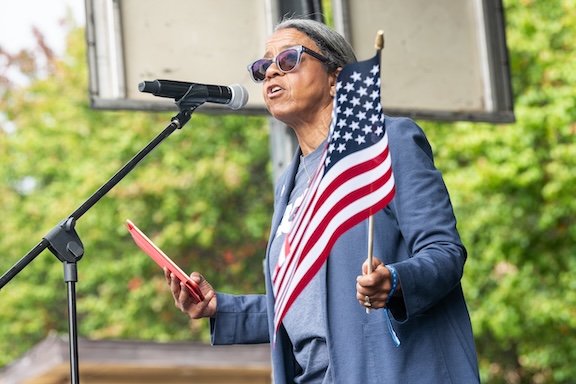Among the estimated 12,000 protestors who gathered Saturday, October 18, at Atlanta Civic Center for a local “No Kings” rally, many rejected the idea that dissent equals disloyalty to the country.
Attendees and speakers said demonstrations in Atlanta, Savannah, Brunswick, and elsewhere signified a movement to reclaim democracy and patriotism from efforts by the Trump administration to weaponize them.
Near the main stage as the rally began, Elizabeth Hargrove posed for pictures and accepted compliments on her patriotic costume: her version of Lady Liberty from the Schoolhouse Rock song “The Great American Melting Pot.”
Dressed in red, white, and blue, with inflated wings bearing stars and stripes, Hargrove said she attended the rally “to be surrounded by others who love our country.”
“I’ve heard pundits on the news, people commenting on social media saying that these rallies are a lot of people who hate America, but it’s really the antithesis of that idea,” she said, as a small plastic cauldron holding tiny flags swung at her hip.
ACLU of Georgia Executive Director Andrea Young reminded the crowd why an estimated 12,000 Georgians showed up. "We are here to uphold the promise of a government of the people, by the people, for the people,” she said to cheers and waving signs that read “Make a Democracy Again, “I (Heart) America and the Constitution,” and “We Love America — That’s Why We Protest.”
—“We are here to uphold the promise of a government of the people, by the people, for the people.”
Andrea Young, ACLU of Georgia Executive Director
The ACLU of Georgia, the Indivisible Georgia Coalition, and other advocacy groups organized the day of action in several locations across the state. Since similar demonstrations in June, the Trump administration’s undemocratic actions have increased.
Abuses of power including silencing journalists, students, and political opponents; demanding lawmakers redraw electoral maps to help his party win elections; and sending masked federal agents to arrest people without due process.
People in every state pushed back against the abuses as 7 million showed up for rallies and marches across the nation. In Washington, D.C., demonstrators filled Pennsylvania Avenue near the U.S. Capitol. On the West Coast, tens of thousands filled the streets in Southern California communities.
The protests were largely peaceful. Police in New York City, where a rally drew some of the day's biggest crowds, said no protest-related arrests were made, according to NPR.

















